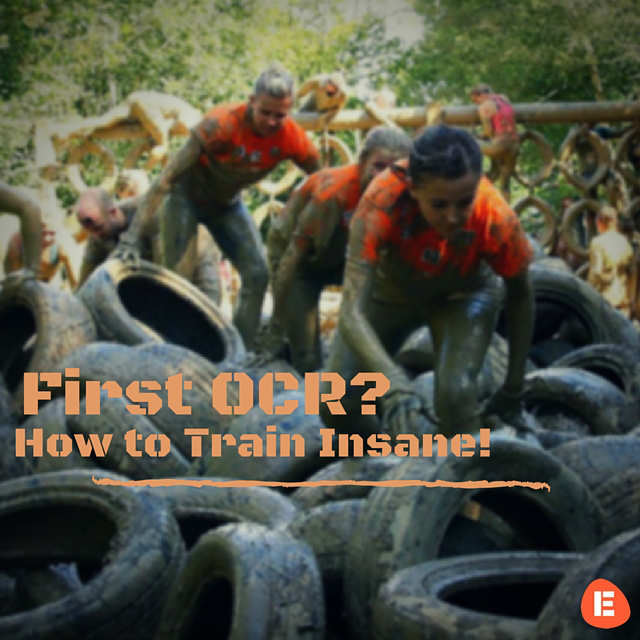
Obstacle course racing (OCR) has become increasingly popular over the last few years. Participants get physically and mentally tested as they make their way through the course of both man made and natural obstacles. We are talking freezing water, huge walls, fire pits, barbed wire, monkey bars. Still interested? Great, so are we! So let’s move onto how we train for these events!
Now you don’t have to completely scrap your current training plan when it comes to preparing for an OCR race. The key to performing at a high level is complete, functional strength. Being the strongest guy or the fastest runner won’t help you here. It is the most well rounded athletes that are the champions of OCR. In this blog we will discuss a few key areas that you will need to work on and how you can enhance your current training plan.
Cardio
In OCR, cardio is king! You can talk all you want about how upper body strength is the most vital component of OCR training but at the end of the day it is a running first event. Many people think they are prepared for a race because they are the strongest guys in their gym. Obstacles? No problem.
Let me tell you now, there are no rest periods in OCR. No amount of deadlifts or pull-ups is going to prepare you for the running part of the race. As you fatigue, the obstacles gradually get harder and harder. So it is essential that you can comfortably run significantly further than the distance of your race. If your event is 12km, try and train towards being able to run about 15km without too much difficultly.
When you actually run the race, you will be wet, covered in mud and carrying a lot more extra weight than you are used to. Thus meaning you will require both endurance and strength to complete the event. Try running with a weight vest to get used to carrying an extra load. This will not only help with your cardio training but also develop extra strength in the legs for when you get bogged down in the trenches (Literally!).
Grip
Having a strong grip is the foundation to any pulling exercise. People tend to underestimate the importance of a strong grip as it something that you don’t typically work on in a daily workout. You will be climbing ropes, swinging on monkey bars and scaling high walls. Doing obstacle after obstacle can take its toll on your grip and forearms. Combine this with having cold or wet hands and mud-covered obstacles, it makes for one tough afternoon!
Start incorporating grip training into your workouts early so you can be fully prepared for the race. One of the best exercises for increasing your grip strength is to simply hang from a rope or pull up bar for as long as possible. Try and relax all other muscles so it is only your hands holding your body weight. If you don’t have access to a rope you can always increase your grip whilst doing your regular gym training. Whenever you do an exercise with a barbell or dumbbells, grip it as tight as you can. This will build strength in your forearms over time.
Bodyweight Lifting
Most of the obstacles that you will encounter will require you to lift yourself over something. These require multi muscle; compound movements that need to be prepared for.
The mother of all strength-building exercises is the pull up. The ability to lift ones own body is key to compete in OCR. If you can’t yet do a pull up, don’t worry! You can get started by using the assisted pull up machine and slowly work your way up. You are rarely going to have to lift your full body weight in a race, but the pull up is the best movement that you can do to prepare for the majority of the climbing obstacles.
The above areas are a good place to start when it comes to preparing for your first OCR. By no means is this the end all. These exercises are just the foundation of what you require to race. In later blog posts we will take a deeper look at what you can do to increase your performance at your event.
The biggest tip that I can share is to train hard. My coach would always preach that ‘You only play as well as you practice’. Don’t expect to turn up on race day and suddenly transform into a super athlete. Put in the work early, train hard and often and see the results! Train Insane!
Are you currently training for an OCR event? Is it your first one? What do you think is the most important aspect of your training? We would love to hear from you! Leave a comment below and share some tips with your fellow readers!
Want to log your training towards your next OCR event? Visit EtchRock.com to get started and find your next challenge!
Team EtchRock